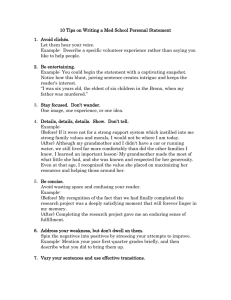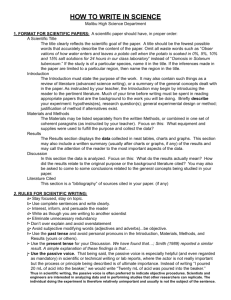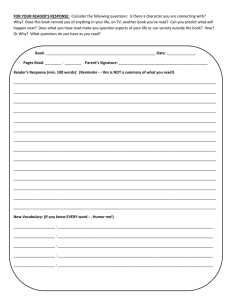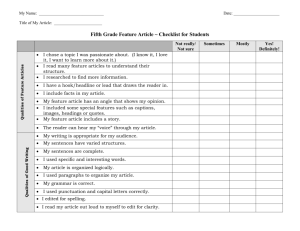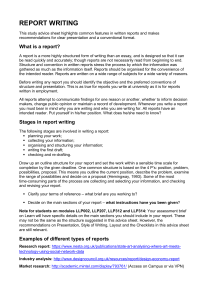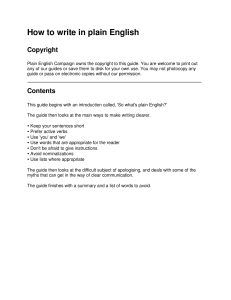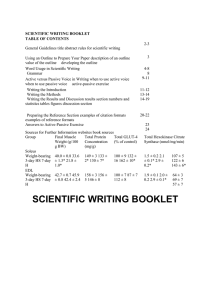Personal Statements - Law School
advertisement
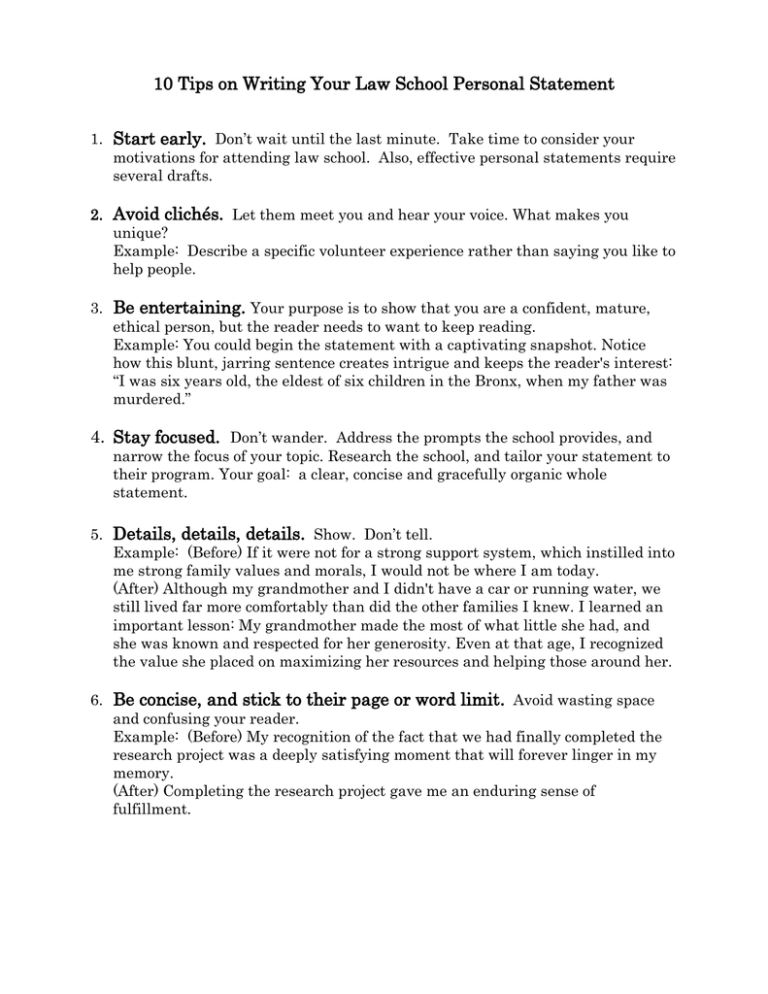
10 Tips on Writing Your Law School Personal Statement 1. Start early. Don’t wait until the last minute. Take time to consider your motivations for attending law school. Also, effective personal statements require several drafts. 2. Avoid clichés. Let them meet you and hear your voice. What makes you unique? Example: Describe a specific volunteer experience rather than saying you like to help people. 3. Be entertaining. Your purpose is to show that you are a confident, mature, ethical person, but the reader needs to want to keep reading. Example: You could begin the statement with a captivating snapshot. Notice how this blunt, jarring sentence creates intrigue and keeps the reader's interest: “I was six years old, the eldest of six children in the Bronx, when my father was murdered.” 4. Stay focused. Don’t wander. Address the prompts the school provides, and narrow the focus of your topic. Research the school, and tailor your statement to their program. Your goal: a clear, concise and gracefully organic whole statement. 5. Details, details, details. Show. Don’t tell. Example: (Before) If it were not for a strong support system, which instilled into me strong family values and morals, I would not be where I am today. (After) Although my grandmother and I didn't have a car or running water, we still lived far more comfortably than did the other families I knew. I learned an important lesson: My grandmother made the most of what little she had, and she was known and respected for her generosity. Even at that age, I recognized the value she placed on maximizing her resources and helping those around her. 6. Be concise, and stick to their page or word limit. Avoid wasting space and confusing your reader. Example: (Before) My recognition of the fact that we had finally completed the research project was a deeply satisfying moment that will forever linger in my memory. (After) Completing the research project gave me an enduring sense of fulfillment. 7. Vary your sentences and use effective transitions. Example: Longer sentences can be used when building a specific image while shorter sentences can draw attention to important ideas. 8. Use action verbs; avoid passive voice. Passive voice: verb phrases in which the subject receives the action expressed in the verb. Passive voice employs a form of the word to be, such as was or were. Example: (Passive) The lessons that have prepared me for my career as a lawyer were taught to me by my mother. (Active) My mother taught me lessons that will prove invaluable in my career as a lawyer. 9. Seek multiple opinions. Find trusted, knowledgeable readers. Avoid overwhelming yourself with too many opinions. I suggest three: one to read for content, one for organization, and one for grammar/mechanics – in that order. 10. End your statement with your goal(s). What do you plan to do with your law degree? (Do this as long as it fits within the prompt.) Avoid - writing a narrative of your resume and transcripts relying too heavily on spell check telling the school what you think they want to hear using quotes giving your statement a title using your statement to explain something negative rambling. Persuading Your Reader - Ethos – credibility. If you show the reader you are trustworthy within your statement, it helps persuade them. Pathos – appealing to emotion (use with caution and restraint). You can show how you care deeply about something. Logos – facts, figures, syllogisms… Logical appeals can be persuasive Mythos – appealing to beliefs/values of the audience. This approach can add subtle power and wider significance to your argument.
